Investing can feel like navigating a maze, but if you’re looking for a strategy that stands the test of time, rental properties might just be your golden ticket. Surprised? While stocks often steal the spotlight, long-term rental investments quietly outperform with consistent cash flow, smart use of leverage, and impressive tax benefits. In this article, I’ll walk you through why acquiring real estate for leasing could be the smartest move you ever make with your money.
What Are the Benefits of Rental Real Estate Investing?
When I first ventured into the world of real estate, I was drawn by the tangible, reliable passive income stream that I could count on every month. Unlike the abstract gains of the stock market, rental income was something I could see and use immediately. In a real estate market with solid cap rates of 8-10%, owning a $100,000 property outright could generate $8,000 to $10,000 annually, surpassing the yields of most dividend stocks or bonds. Eventually, this steady cash flow provided me with financial flexibility and allowed me to reinvest, cover expenses, and enjoy a stable lifestyle.
But the real magic of rental properties lies in the collateral power. When I first learned about leveraging debt through low-cost, fixed-rate mortgages, it felt like discovering a hidden cheat code in investing. By putting down just 25% of the property’s price, you could control an asset appreciated at its full value, not just your initial investment. A property's 3% annual appreciation could translate into a 12% return on your actual cash invested, thanks to the power of leverage. While mortgages aren’t free—except for rare stretches, like in the U.S. after COVID when rates were near 0%—they almost always offer a better deal than buying with your own cash. The more real estate you hold, the more effective this strategy becomes as your collateral grows.
Finally, the tax benefits associated with rental properties are the icing on the cake. Unlike other investments, rental real estate offers significant deductions on expenses like property taxes, insurance, and mortgage payments. But the real game-changer is depreciation. Even though real estate typically appreciates over time, the usual tax offices allow investors to depreciate the value of their property over long periods of time and reduce taxable profits. This means that in many cases, you can significantly lower your tax liability on rental income, further enhancing the overall profitability.
How Do You Choose the Right Rental Property in the Best Location?
Choosing the right rental property in a great location is a crucial step that can make or break your investment success. The property type you select—whether it's a single-family home, an apartment, or a vacation rental—will significantly influence your management approach, income potential, and tenant relationships. For instance, single-family homes are easier to manage, as tenants often take on minor maintenance tasks themselves, treating the property as their own. In contrast, vacation rentals require more hands-on management due to frequent tenant turnover, but they can offer significantly higher cash flow.
When I first started, I quickly learned that property type and location are inseparable. Even the ideal property won’t perform well in a poor location. Location is the lifeblood of real estate investing, dictating everything from rental demand to property appreciation. When choosing a location, consider factors such as local job markets, school districts, crime rates, and proximity to amenities like public transportation, shops, and parks.
For example, a single-family home in a thriving, low-crime neighborhood with good schools and easy access to transportation will likely attract long-term tenants willing to pay premium rents. Apartments, ideal for those with busy lifestyles, should offer convenient access to transportation and be near leisure and entertainment options. Vacation rentals, on the other hand, thrive when located near natural attractions or tourist destinations.

What Legal Structures Should You Consider for Your Rental Property Investments?
The structure you choose will significantly impact your liability, taxes, and management flexibility. Common options include sole proprietorship, partnership, limited liability company (LLC), trust, and corporation.
While your final decision depends on your specific jurisdiction and personal circumstances, an LLC often proves to be the best option in most cases. Here are some key benefits of using an LLC to hold your rental properties:
- Asset Protection: Shield your assets from any legal claims arising from the rental business. If a tenant sues the LLC, only the assets within the LLC are at risk—not your personal bank account or other properties.
- Anonymity: In many jurisdictions, the LLC, not you, is listed on property titles, financial contracts, and rental agreements, offering a layer of privacy.
- Flexible Tax Options: Choose how your LLC is taxed—whether as a sole proprietorship, partnership, or corporation—depending on what best suits your financial situation.
- Risk Isolation: If you own multiple properties, creating separate LLCs for each one can further isolate risk. This ensures that if one property faces legal issues, the others remain protected.
Additionally, LLCs simplify the process of transferring ownership, whether during your lifetime or as part of a generational estate plan. By holding all your properties under a single umbrella LLC, you can easily transfer the entire entity into a trust without the hassle of re-titling each individual property. You can also divide the LLC into fractions for sale or include your children as co-owners. For these reasons, an LLC is often the most strategic and efficient choice for holding rental properties, offering a combination of protection, flexibility, and peace of mind that few other structures can match.
How Can You Finance Your Rental Property Investment?
The oldest, most time-tested, and most popular way to finance the purchase of a rental property is through a loan. Get your credit score ready! Conventional bank loans usually require a 15-25% down payment, making them a reliable option for many investors. Hard money loans, which offer faster approval but higher interest rates, are great for short-term needs, especially when you need funds for renovations. The best option, however, is if you already have some real estate equity. In that case, you can leverage a mortgage loan to finance additional properties—this is the strategy that most wealthy real estate investors have used to build their empires.
Real estate syndication has gained popularity as an innovative way to pool resources with other investors and acquire property. Syndications are great if you have a limited budget or want to diversify, but they come with their own set of challenges. Even with these alternatives, many investors still rely on a well-structured mortgage as the foundation of a successful real estate portfolio. With competitive interest rates, a mortgage allows your rental property to start generating income almost immediately, helping you cover the debt and turn a profit.

How Do You Maximize Profit from Your Rental Properties?
Once you own the property, your next challenge is making it stand out while balancing affordability and value. To keep your units occupied and your tenants satisfied, you need to set a rent price that’s fair compared to similar properties in the market, yet still more attractive than the competition. Achieve this by creating a compelling property description and using high-quality photos that showcase your property’s best features. Experiment with different lighting, angles, and times of day to capture images that make your listing stand out and draw in potential tenants.
Beyond pricing and presentation, actual cosmetic updates are crucial to maintaining your property’s appeal. Simple improvements like fresh paint, modern appliances, and well-maintained common areas can significantly enhance your property's attractiveness. Consider small upgrades that add real value, such as energy-efficient windows or in-unit laundry facilities, which can justify a higher rent. Additionally, keep a close eye on operating costs and find ways to reduce them without sacrificing quality. This might involve negotiating better rates with service providers or investing in durable materials that require less maintenance over time. Ultimately, the goal is to find the sweet spot where your rent perfectly aligns with your offer's value, making it clear to tenants that your property is the best choice in the market.
How Much Time Does It Take to Manage Rental Properties?
For one or two rentals, expect to spend a few hours each month dealing with tenant issues, handling maintenance, and managing leases. On average, you’ll need about 4 hours per month per property, which adds up to roughly 48 hours a year. As your portfolio grows, so do the demands on your time, making self-management tougher. If you find yourself stretched too thin, just hire a property manager. While this increases your operating expenses, eventually you buy extra time, the most precious resource, that you can spend on other investments or personal priorities.
Frational Investing in Rental Properties with a Small Budget
If you want to invest in rental properties but don’t have the budget for a whole unit or prefer a hands-off approach, fractional investing offers a great entry point. This method allows you to own a portion of a property, benefit from rental income, and value growth proportionally to your share. It’s an effective way to diversify your portfolio and minimize the financial risk of owning a single property outright.
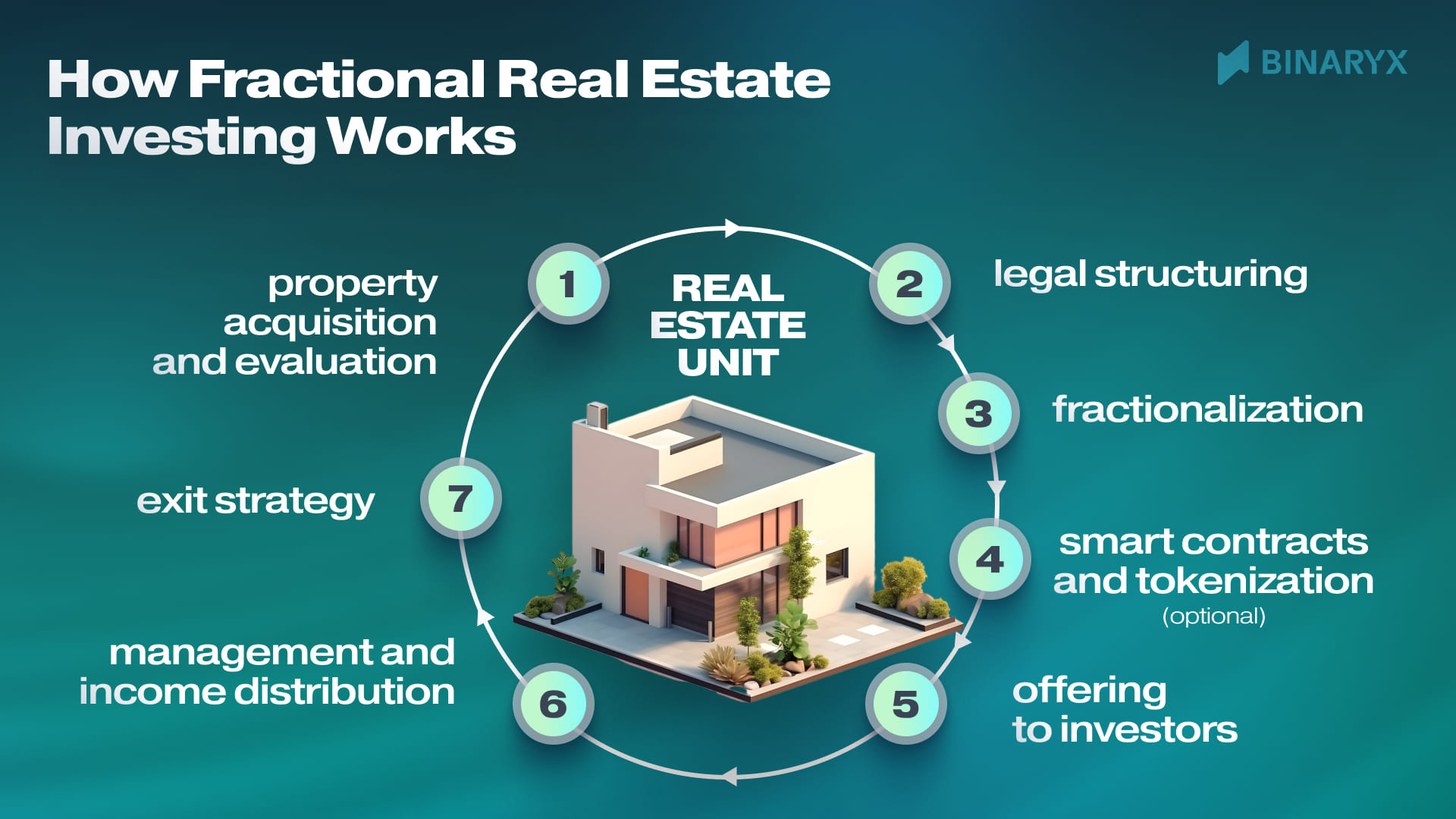
Platforms like Binaryx make fractional investing accessible on a global scale. The Binaryx Platform creates a DAO LLC for each property to hold a title, raise capital through the sale of property tokens, and then take care of management. These tokens grant you legal ownership of a share in the LLC, which owns the property, and qualify for automatic rental income distribution. For instance, with $10,000 to invest, you can spread your investment across multiple properties or focus on a single one. And with Binaryx, you can start investing in the rental market with as little as $500. It’s a straightforward way to begin building your real estate portfolio—why not give it a try?
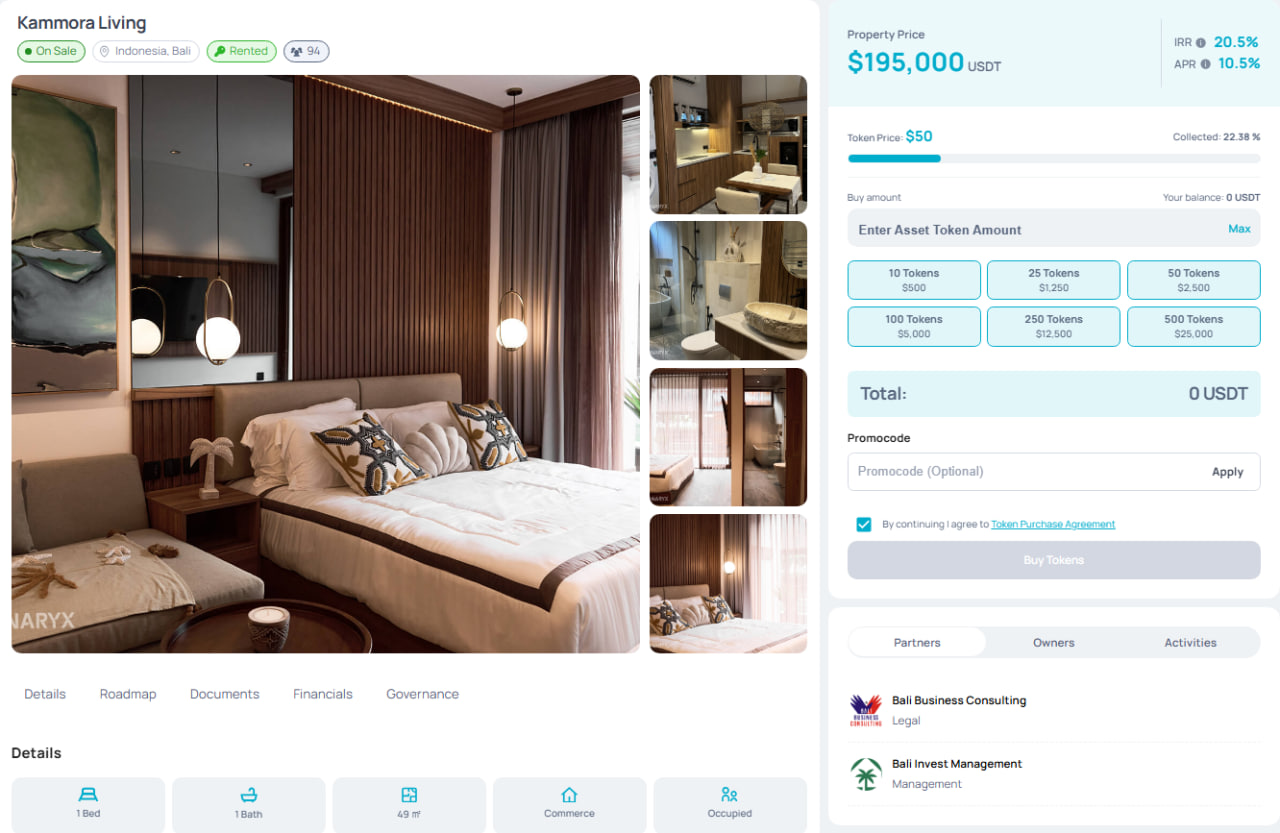
What Are Your Next Steps Toward Building a Rental Property Portfolio?
Investing in rental properties has proven to be one of the most reliable ways to build long-term wealth. I’ve personally seen how a rental real estate portfolio can significantly outperform other investments like stocks with steady cash flow, smart use of leverage, and generous tax benefits. The potential here is huge, whether you're choosing single-family homes in high-demand areas, vacation rentals near tourist hotspots, or taking a more hands-off approach with fractional ownership. The key is finding the right balance between affordability and value, setting fair rents, and managing your properties efficiently.
So, what are your next steps toward building a rental property portfolio? Start by assessing your budget and goals. If you’re ready to dive in, explore your financing options, and the ability to take a loan on good terms. If you want a more gradual or hands-off approach, fractional investing is a smart entry point. Platforms like Binaryx make it easy to own a portion of rental properties without the hassle of managing them yourself. Binaryx allows you to start with as little as $500, giving you a chance to grow your investment over time while enjoying rental income from properties worldwide.
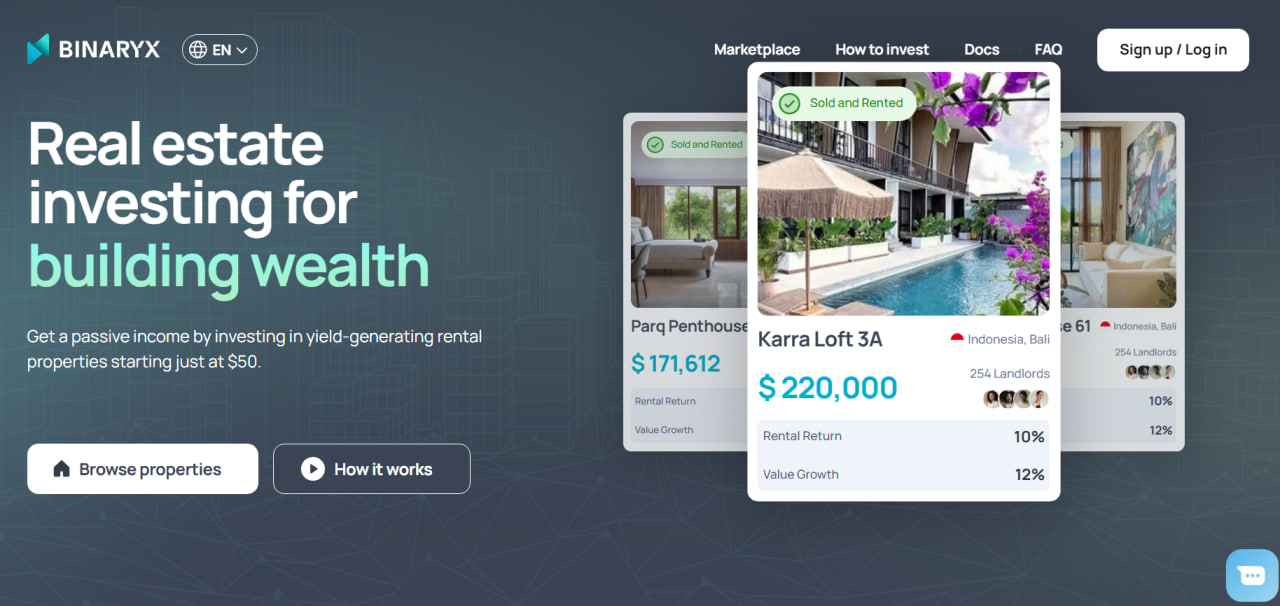
Articles you may be interested in

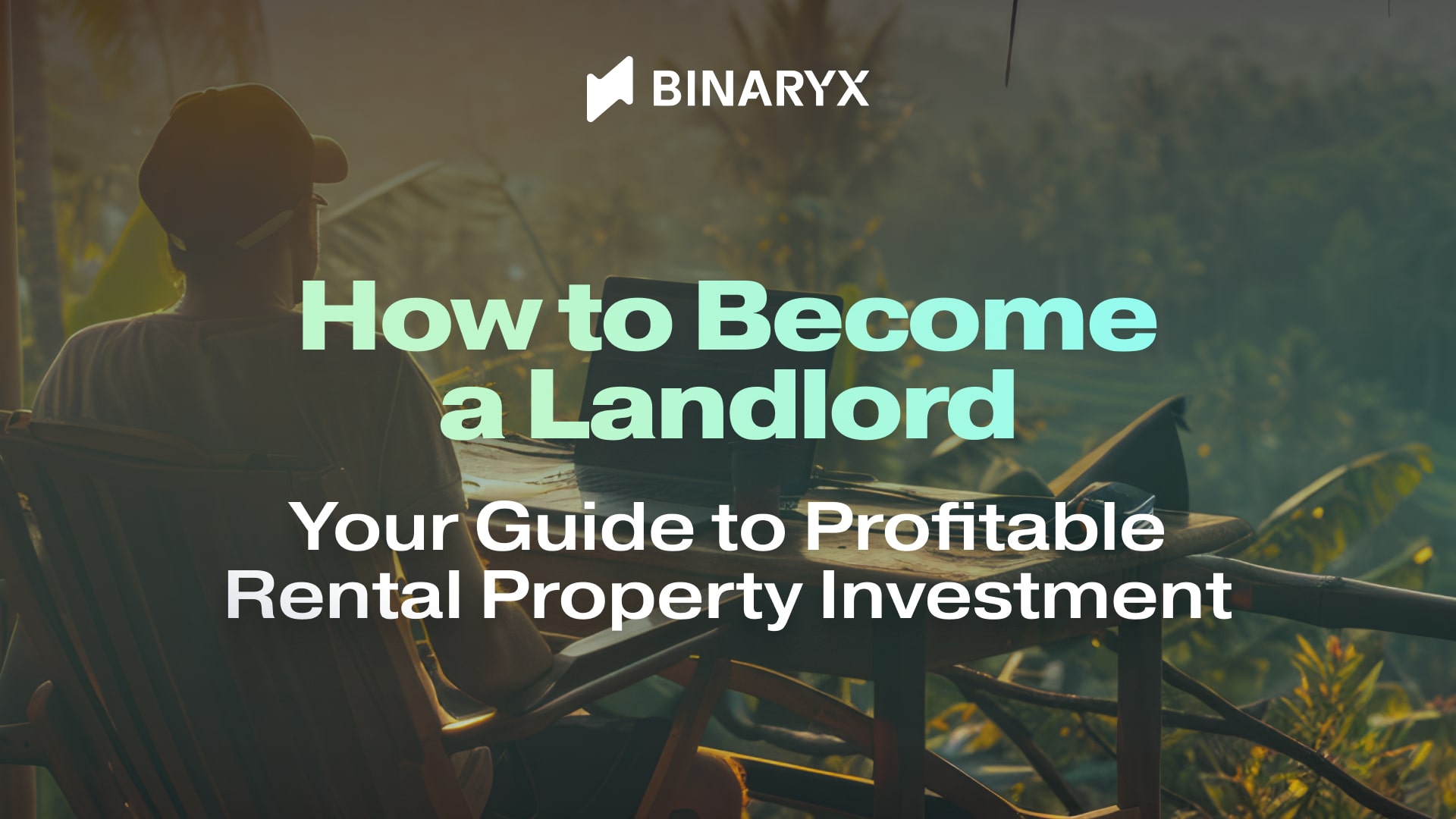

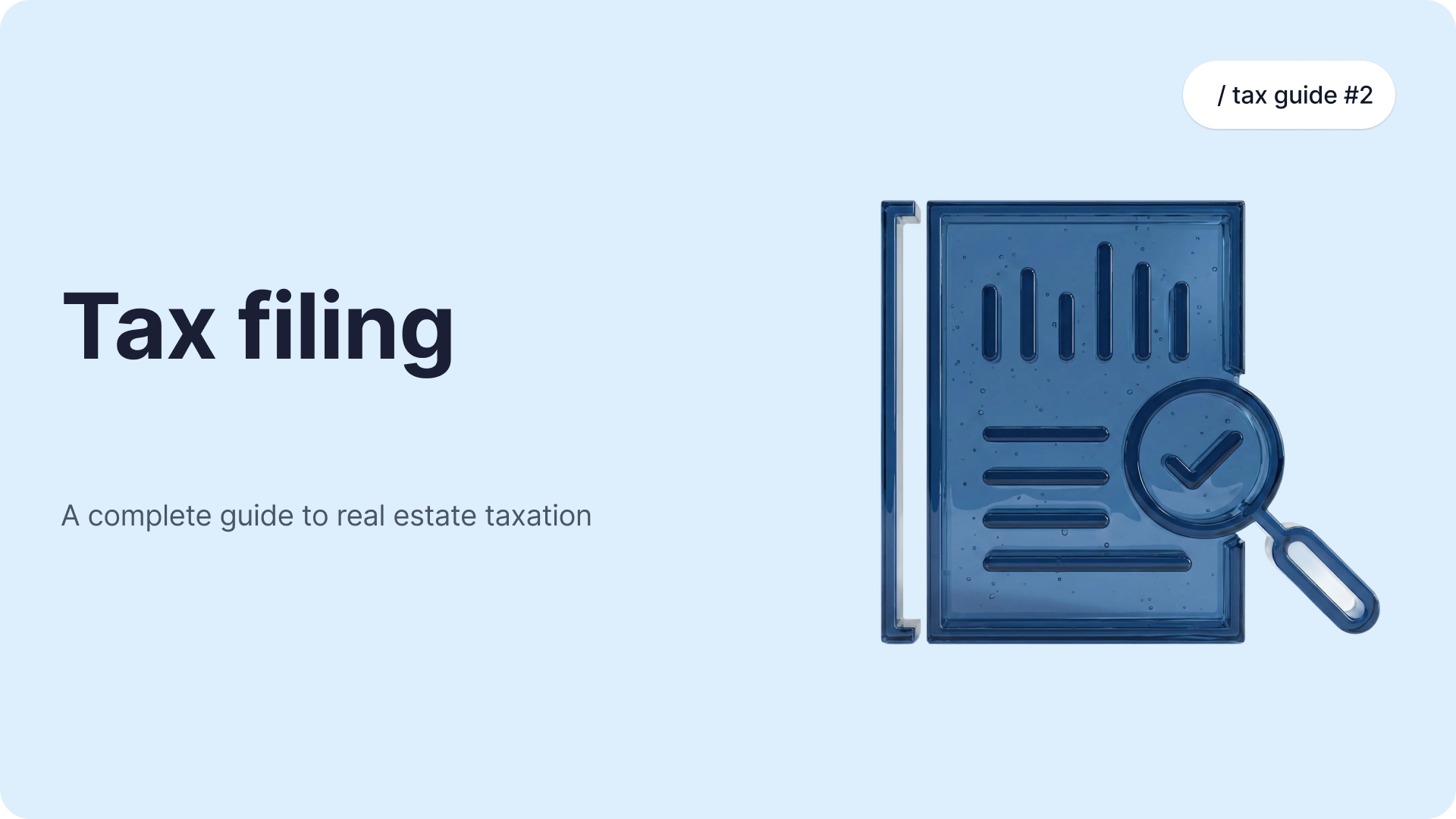
.png)
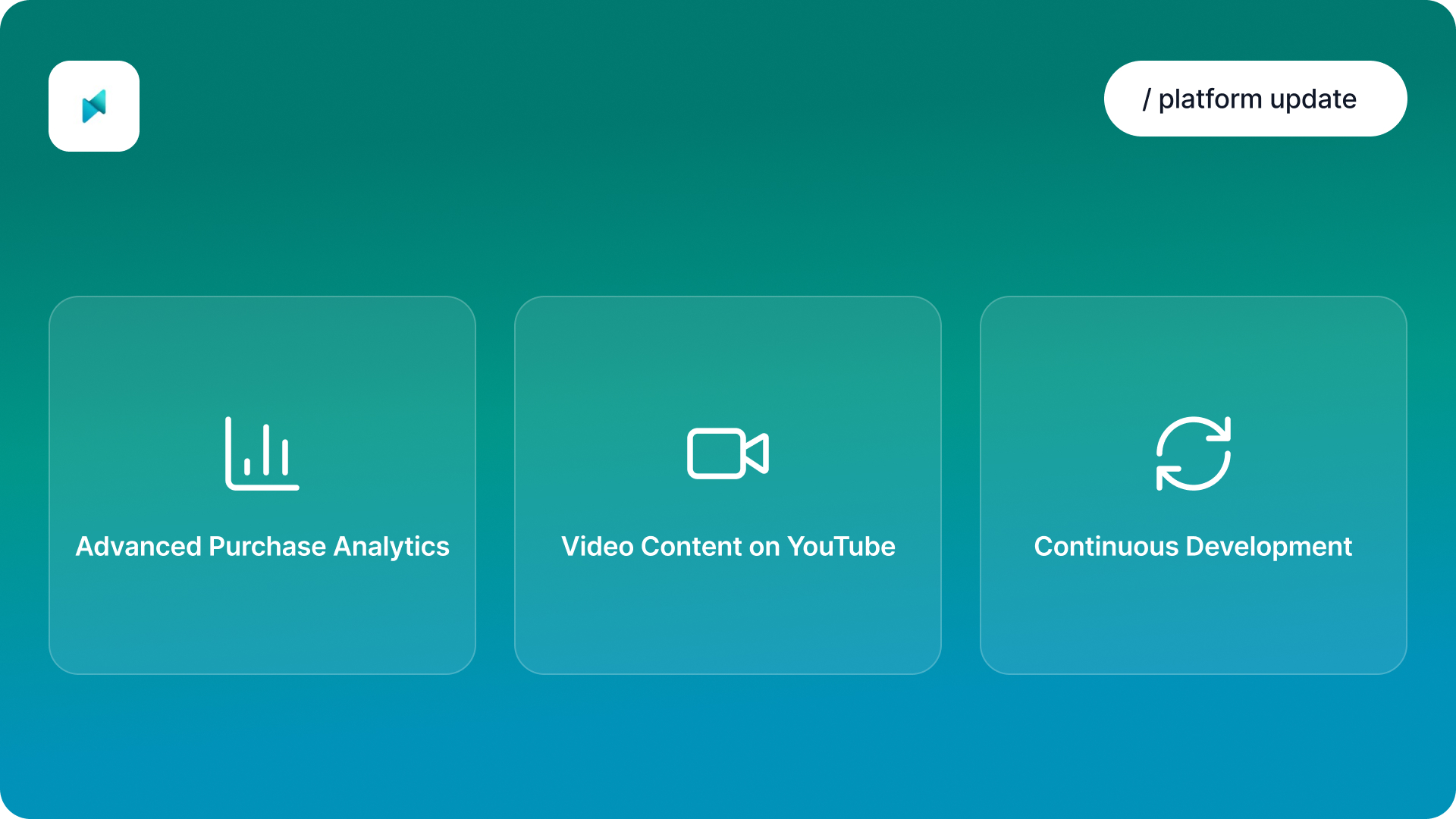

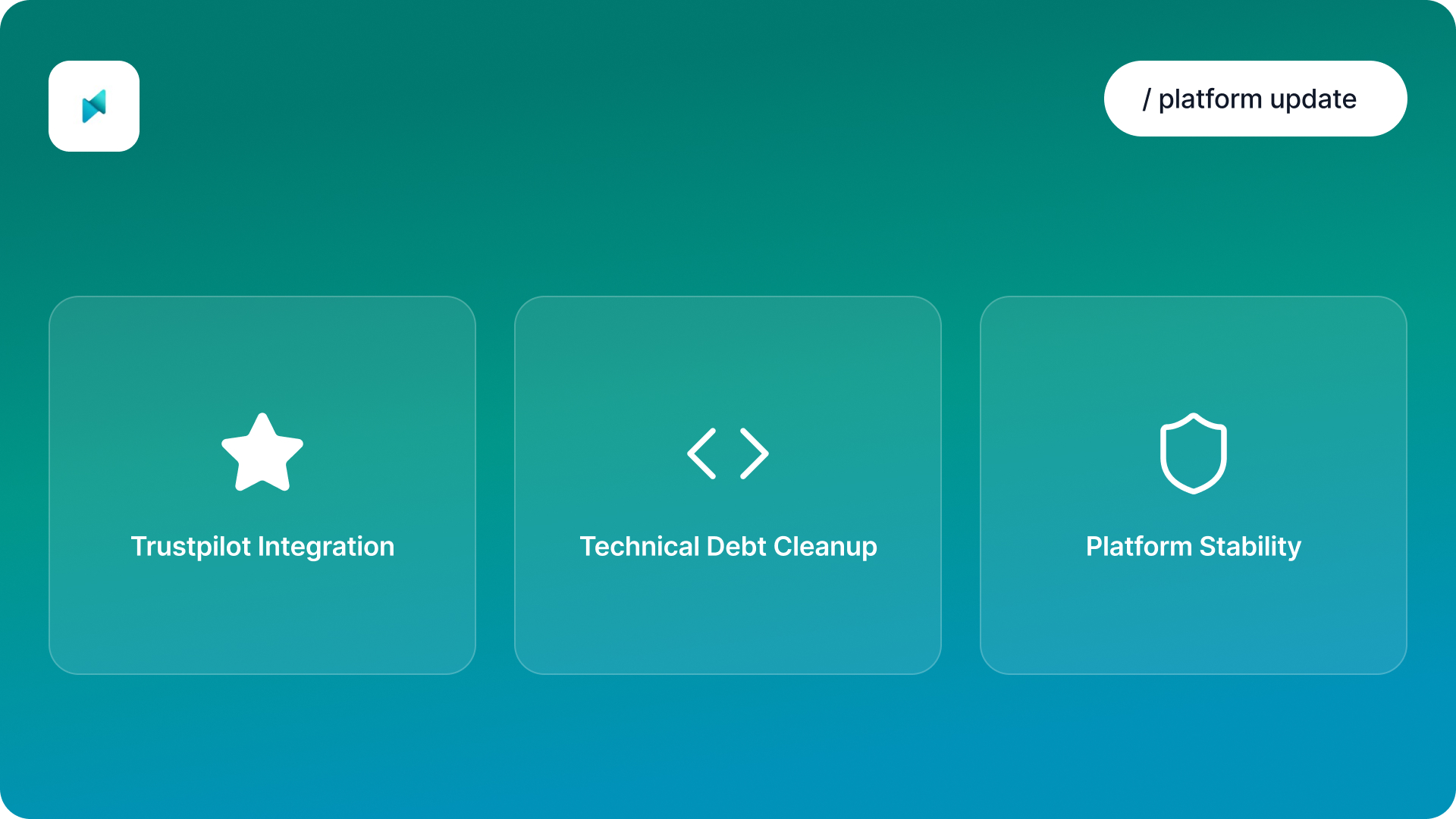
.png)

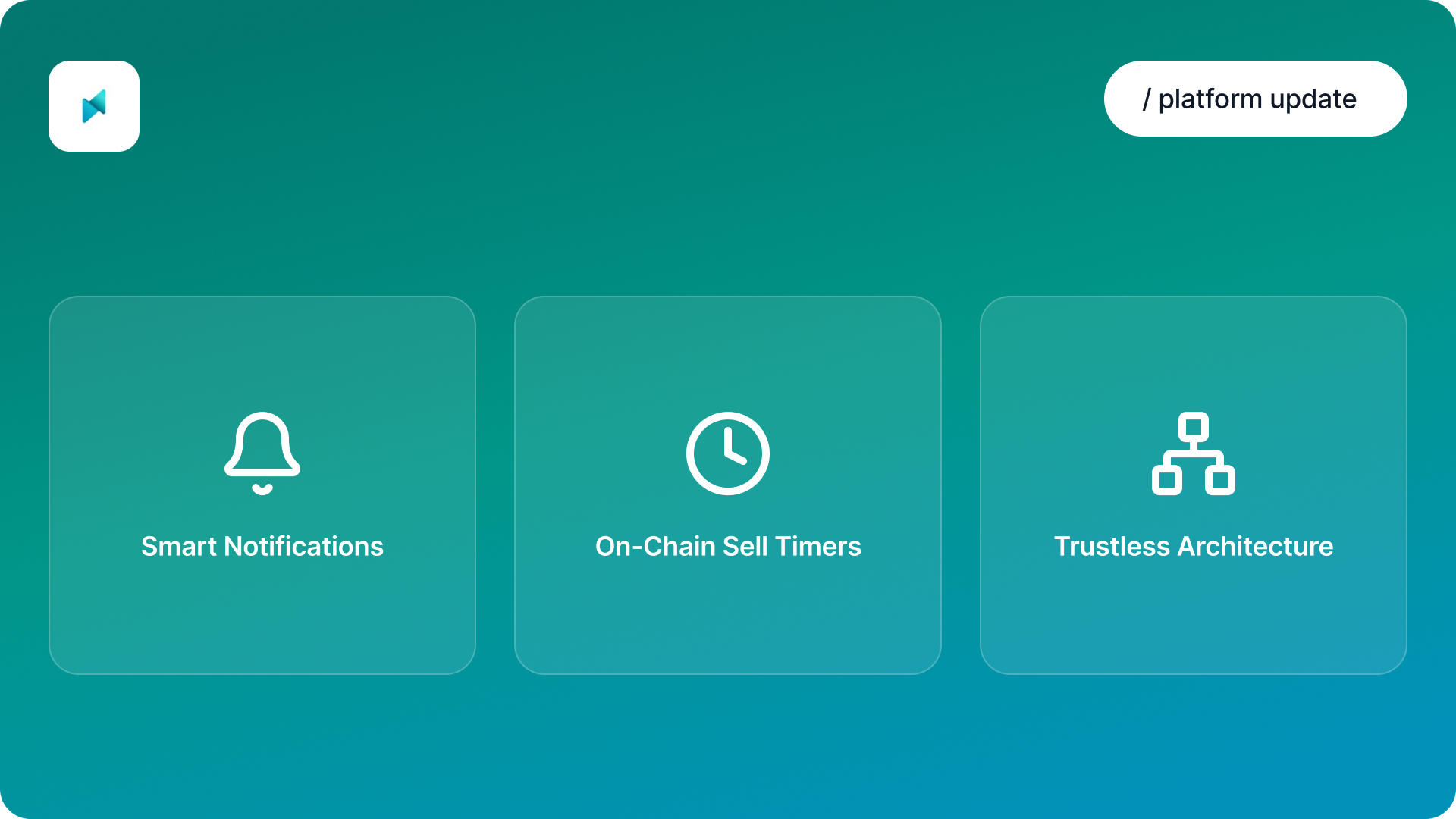

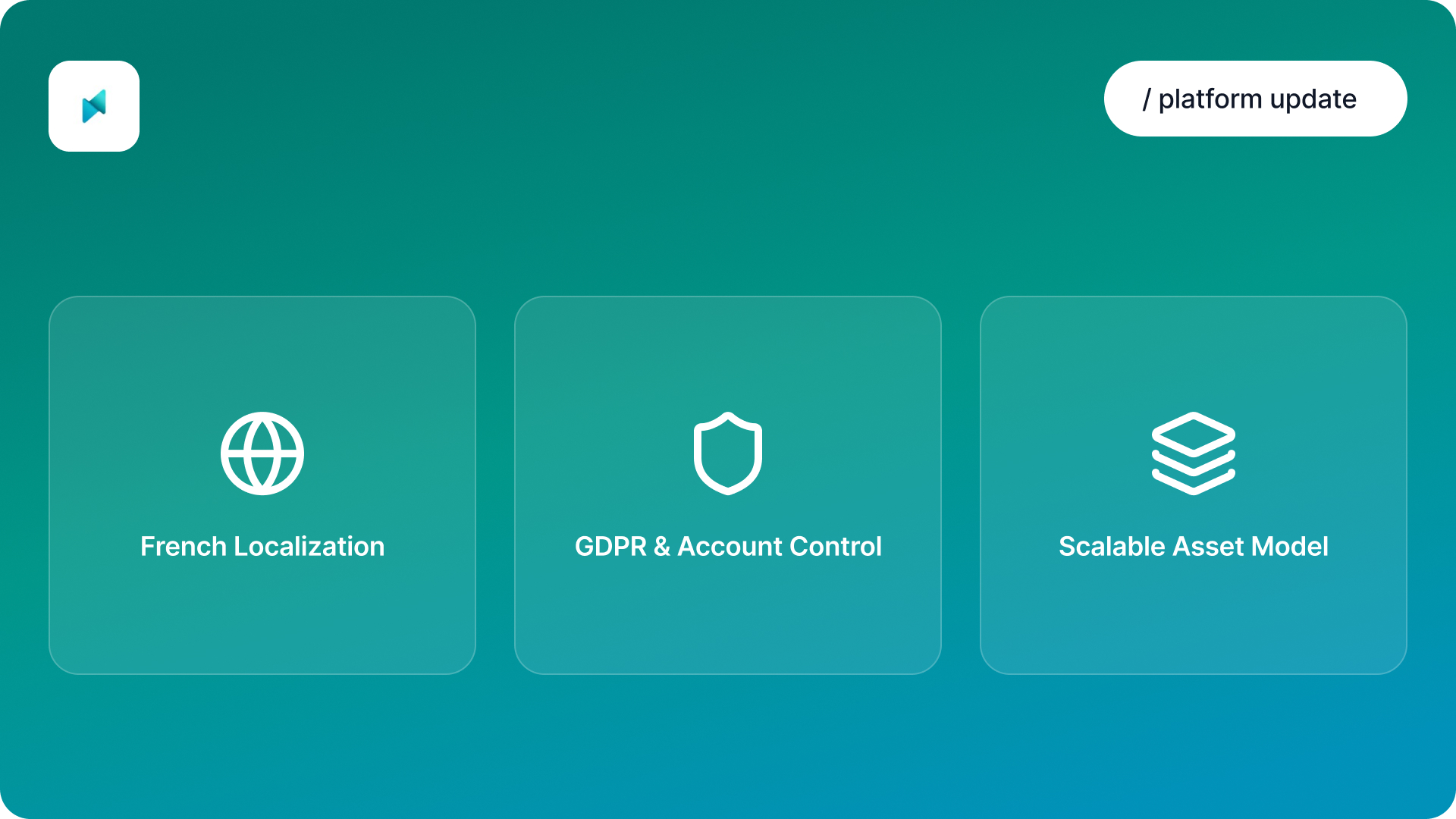
.jpeg)
.webp)